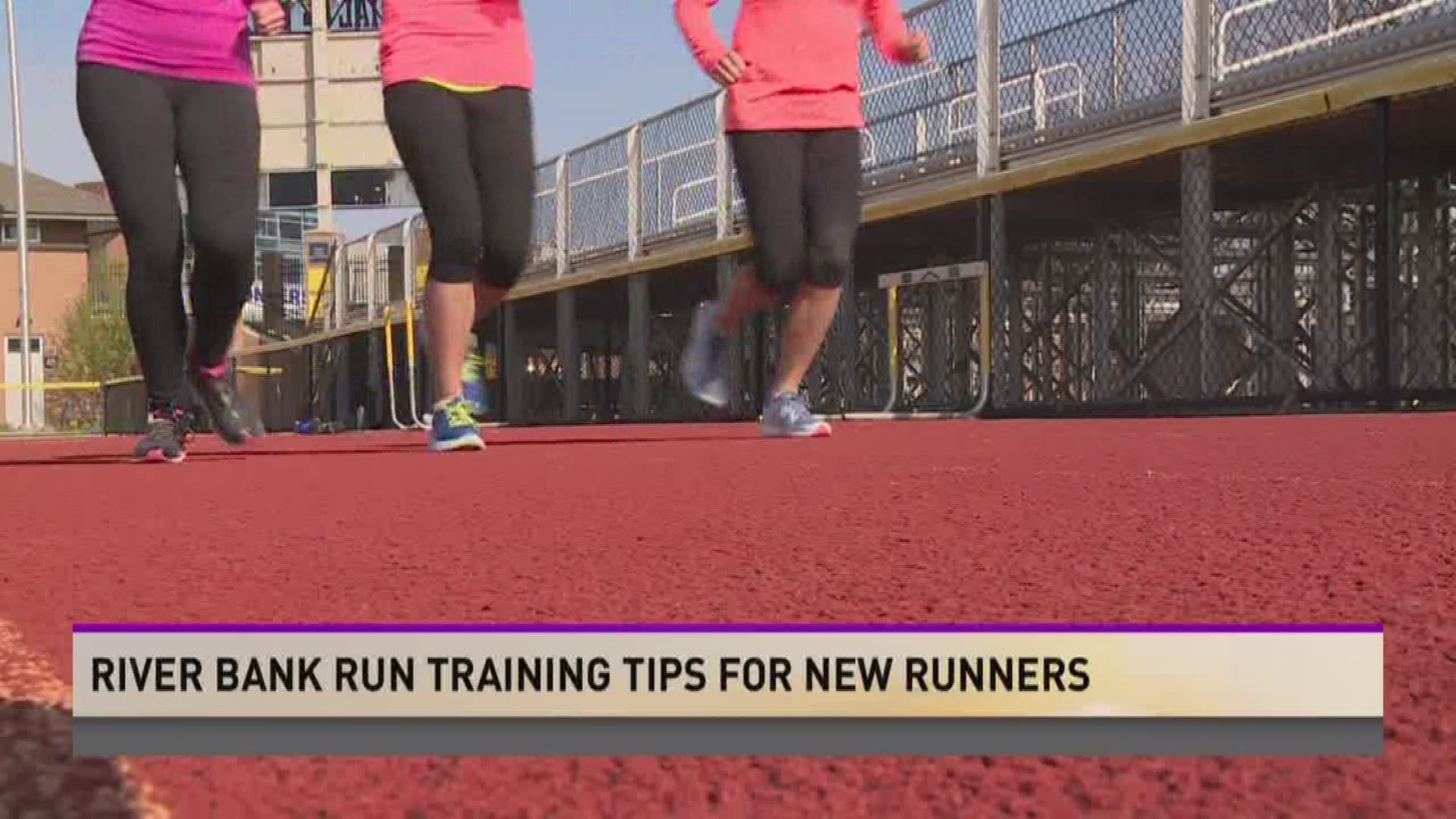Is running the 2017 Riverbank Run on your radar for this spring? Running expert Kari Stuart joined the Weekend Morning team to answer a few common questions that new runners likely have about training for the race.
Question 1: What gear do I need?
"Not much," says Kari. "The beauty of running is that very little equipment is required. However, there is one important piece of gear that you must invest some time and money, and that is the RIGHT pair of running shoes. Don’t skimp here- your feet will pay the price and you could get hurt."
"A professional at one of our great local running stores like Striders will look at your biomechanics and fit you for the right shoe," she said.
"There’s a lot of other great accessories out there that can make your runs safer, more comfortable or more enjoyable, but they are not required. I do suggest wearing a moisture wicking fabric, which is pretty easy to come by these days. Cotton is rotten and can cause nasty painful chafing. Same goes for your socks. Wool or a synthetic blend can help to reduce the likelihood of blisters. If you're going to invest more money, the next place to spend after shoes is on safety - lighting and reflectiveness."
Question 2: What pace do I run?
"You run YOUR pace. Your breath will tell you what that should be," explained Kari. "Some new runners are so concerned with pace that they push themselves too hard and never take the time to learn how to breathe properly while running. This makes it hard to improve speed later and can also lead to side stitches and a lot of miserable miles."
"Instead of wondering how fast you should be going, just focus on your breathing. There’s no doubt that running can make you feel out of breath, but the goal should be to relax into your stride so your breathing becomes moderate. This means you can talk, but maybe only 5 or 6 words at a time. At a good pace, you feel slightly breathless, but also relaxed and in control. Once you feel comfortable at a certain pace (i.e. you could have an entire conversation), then you know that you can work on increasing speed. Remember, we all move at a different speeds, and there is no magic pace that makes you a “runner”.
"Starting with a run walk combo is a great way to learn your pace and discover what your body is capable of without overdoing it. Always start with a warm up first and a cool down at the end."
Question 3: How far should a new runner be running?
"That will depend entirely on your goals," said Kari. "If you have a goal in mind, finding and following a training plan is a great idea. The plan will keep you safely moving towards your goal and make sure you’re prepared for race day. The problem is that some training plans are complicated and can get pretty aggressive. It is okay to modify an existing plan to work for your schedule or to create your own plan. Modifying your plan to incorporate that run walk is really smart too."
"The most basic plan should consist of at least 3 runs per week, lasting 20-30 minutes. If you’re training for a higher mileage race, you’ll want to designate one run each week as your “long run” where you increase mileage building up towards race day. Start with low mileage though to give your body time to adjust to the workload. Mileage should increase by about 10% each week as you move towards race day."
Question 4: What are some other resources that new runners can use?
"A lot of runners might hire a coach or a trainer to help them get started. This is what I do, and it's an awesome way to find someone to answer all your questions and make sure you don't get hurt. There are also some local run groups that can set you up with a plan and offer group training runs."
Here's a few that Kari recommends:
Sole Sisters Training Group (women only)
Striders Run Group
RunGR
You can also find training plans for the 5/3 Riverbank Run here.
You can ask Kari other questions yourself on Twitter, her handle is @SymmetryKari

